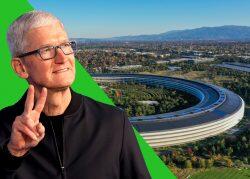Google’s decision to call employees back to the office couldn’t have come too soon for Newmark’s Phil Mahoney, who has spent four decades helping expand the Silicon Valley presence of the likes of Apple, Amazon and Meta — just so long as it doesn’t turn into Charlie Brown’s fruitless attempts to kick a football that keeps getting pulled away.
“Every time they say here’s the date, there it goes,” he said in an interview. “They’re reticent to put a date down again only to miss it again.”
Charlie Brown’s frustration was an apt image for Mahoney, 61, a defensive end at Stanford University who played under legendary coach Bill Walsh. Mahoney has been the Valley’s top producer by square footage almost a dozen times, working on deals that include Meta’s 719,000-square-foot office lease in Sunnyvale last year, the largest of its kind in the private sector in 2021.
Mahoney worked as a part-time bouncer and furniture mover after graduation when he got into commercial real estate through pioneering Silicon Valley developer John Arrillaga, who died in January at 84. Arrillaga helped get him an interview with Cornish & Carey Commercial, “the only firm that would hire me,” Mahoney said.
He was a young broker as the Valley began to emerge as a center of the world’s tech industry, albeit amid a nationwide recession that featured stagflation and 18 percent interest rates. Two decades later, he was representing tenants and also marketing offices on behalf of landlords as the dot-com bust erased one in five of the Valley’s jobs.
He was still at it during the Great Recession of 2007 to 2009 that sent stocks into a tailspin — and, more recently, as the pandemic halted office work altogether for the better part of two years, leaving 15 of every 100 offices in the region empty by the end of 2021.
Mahoney is still a believer in the Valley’s ability to reinvent itself, even after tech companies such as Hewlett Packard Enterprise and Tesla moved to Texas during the pandemic and housing prices made the area more unaffordable than ever. Now, as Apple, Meta and Microsoft join Google in setting firm return-to-office dates, he’s optimistic that the Valley’s office market, the softest sector during the pandemic, will recover.
“It’s a failed strategy to say, ‘Thou shalt not grow in Silicon Valley,’” he said. “You can grow elsewhere, you can expand elsewhere, but just even organic growth will occur in the Valley, or you will be left behind in your industry.”
Granted, the region faces headwinds that could spell another Lucy Van Pelt moment. The Federal Reserve is committed to raising interest rates to tame inflation, making it more expensive for developers to raise money for new projects. Oil prices surged in the wake of Russia’s invasion of Ukraine, meantime, putting more pressure on the Fed to keep rates higher for longer.
Apple, Google, Airbnb and Microsoft, all of which are either based in the area or have campuses there, have pulled their most popular products and services from Russia. In addition, many tech companies employ Ukrainians.
Yet benchmark lending rates remain historically low, hovering at about 2.2 percent now, compared with about 5 percent during the dot-com bust and about 4 percent in 2009.
Besides, there aren’t “a whole lot” of new projects coming onto the market, Mahoney said. He doesn’t expect an influx of offices available for sublease to suddenly hit the market either, which, combined with demand picking up for larger blocks of offices, means net absorption should be positive this year after ending 2021 in the red, he said.
For most companies, return to office plans are gaining traction, “especially in the C-Suite,” Mahoney said. Moreover, employees who expect to work from home full time may not be able to advance in their careers.
“Those of you that think you’re out of here five days a week, you may as well be out of here seven days a week,” he said.
After four decades in the business, Mahoney said he’s accomplished his career goals and doesn’t have “a whole lot of other mountains I want to climb.” He and his wife Kelly have a son and daughter at USC, where his son plays football and is majoring in real estate development, and a daughter who moved to New Zealand to work at an architectural firm after graduating from Cornell.
“One of the visions that came out of the pandemic was I’m not ready to retire,” he said. “I’m certainly closer to the end of the game than the beginning of the game. Certainly, I’m not going to do this for another 15 years. That’s not happening.”
Read more

